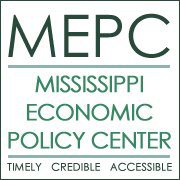Headlines
Rethink Mississippi: Tuition Hikes Add Another Hurdle to Higher Education

Mississippi universities will see another tuition hike this year after a number of continued increases.
Photo courtesy of Rethink Mississippi
Mississippi’s universities will once again raise their tuition rates. The universities cite reduced investment from the state, coupled with increasing costs on their campuses, such as faculty salaries and operational costs as reasons for the increase. As a result, six of eight state universities will raise tuition when classes start in the fall. The tuition hike occurred on top of increases of approximately 25 percent over the past five years.
 As tuition continues to rise, Mississippi students are increasingly finding themselves in a difficult position. These tuition increases far outweigh median incomes for Mississippi families, which often times leaves families unable to afford the costs of higher education, if they’re able to pay at all. Students receive approximately $6,500 in federal and state financial aid, but this only covers a third of the total cost of attendance, which includes books, housing and/or transportation. If there is no institutional aid to make up the difference, students and their families rely on student loans to fill the gap in financing their higher education. This increased reliance on loans burdens families with thousands of dollars of debt, which is worsened if students are unable to persist to a degree. The ability to invest in cornerstones such as a home or retirement plan is inhibited as a result. More than half of Mississippi’s college students take on some form of loan to finance their education. Mississippi currently has a three-year loan default rate of 16.3 percent, ranking us seventh highest in the nation. The need to obtain higher education places many individuals and families in financial strain that threatens their economic security. Financial aid is crucial to college completion.
As tuition continues to rise, Mississippi students are increasingly finding themselves in a difficult position. These tuition increases far outweigh median incomes for Mississippi families, which often times leaves families unable to afford the costs of higher education, if they’re able to pay at all. Students receive approximately $6,500 in federal and state financial aid, but this only covers a third of the total cost of attendance, which includes books, housing and/or transportation. If there is no institutional aid to make up the difference, students and their families rely on student loans to fill the gap in financing their higher education. This increased reliance on loans burdens families with thousands of dollars of debt, which is worsened if students are unable to persist to a degree. The ability to invest in cornerstones such as a home or retirement plan is inhibited as a result. More than half of Mississippi’s college students take on some form of loan to finance their education. Mississippi currently has a three-year loan default rate of 16.3 percent, ranking us seventh highest in the nation. The need to obtain higher education places many individuals and families in financial strain that threatens their economic security. Financial aid is crucial to college completion.
Increasing access to higher education is an essential component in helping Mississippi to realize its economic potential. While much work has been done to increase access to higher education opportunities, much work is still needed. As a state, Mississippi must continue to identify policy opportunities that will increase access to higher education. Additionally, the state must also balance the need to make higher education affordable while ensuring our institutions of higher education have the resources needed to provide a quality education.
 Deeneaus Polk is a Policy Analyst for the Mississippi Economic Policy Center. Deeneaus primarily focuses on workforce development, higher education access and completion, family economic security, public outreach, and other policy issues that impact working poor families. Deeneaus attended the University of Mississippi where he earned a Bachelor of Arts in International Studies and German.
Deeneaus Polk is a Policy Analyst for the Mississippi Economic Policy Center. Deeneaus primarily focuses on workforce development, higher education access and completion, family economic security, public outreach, and other policy issues that impact working poor families. Deeneaus attended the University of Mississippi where he earned a Bachelor of Arts in International Studies and German.
Rethink Mississippi is an outlet for insight, analysis, and commentary about the issues facing Mississippi’s rising generation — written by people who are committed to making a difference in the state. RM is sponsored by the William Winter Institute, which works with communities in Mississippi and around the world to end all discrimination based on difference.






















